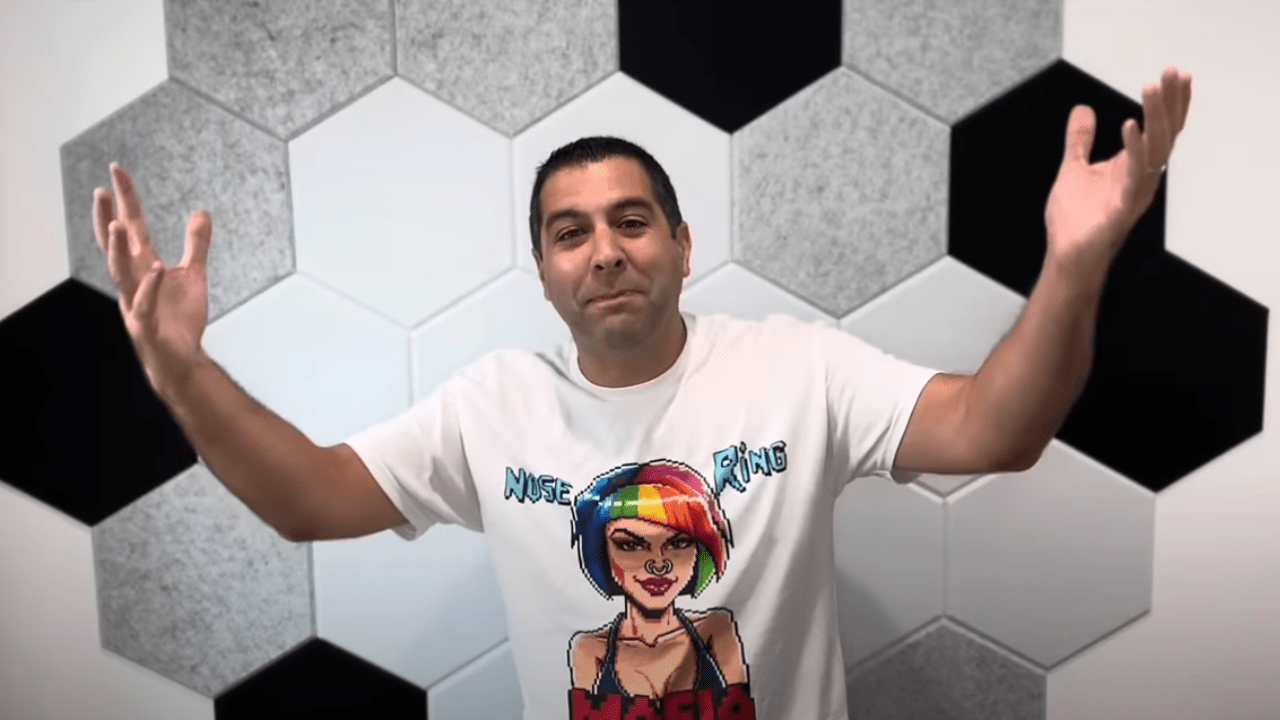
YouTube personality Smash JT has made a major move in his ongoing legal dispute with Alyssa Mercante, former Senior Editor at Kotaku. Ron Coleman, representing Smash JT from Dhillon Law Group, has submitted a request to dismiss Mercante’s defamation lawsuit. The reason for this motion is that the case appears to be without foundation, both legally and factually.
For transparency, it should be noted that YouTube personality Smash JT and Alyssa Mercante are involved in this case, with Ron Coleman and the Dhillon Law Firm representing both parties. In addition, Park Place, WDW Pro, and Valliant Renegade are also being represented by Mr. Coleman. It is worth mentioning that Park Place is a subsidiary of a company that has made monetary contributions to The Dhillon Law Group.
Jurisdictional Issues Highlighted
In Coleman’s submission, his initial argument centers around the appropriate court for this case. He points out that Mercante filed her lawsuit in New York, although she admitted in her complaint that Jeff Tarzia (known as Smash JT) is a resident of California. However, according to Coleman, there are no allegations suggesting that Tarzia operates his business in New York, which casts doubt on the selection of venue.

Coleman refers to previous court rulings, emphasizing that publishing content on the internet does not necessarily mean engaging in business within New York. The courts have often decided that the accessibility of potentially defamatory online content doesn’t provide a basis for a lawsuit in New York, especially if the defendant lacks direct business connections there.
Failure to State a Claim
Coleman contends that Mercante’s defamation claim is fundamentally flawed, going beyond legal technicalities. He believes that since the lawsuit involves sensitive “culture war” subjects and contains a high volume of political speech, it lacks the factual foundation essential for a successful defamation case.
In Coleman’s opinion, since Mercante is a public figure, it’s crucial that she substantiates all necessary elements in a defamation claim, especially proving actual malice. He clarifies that simply labeling statements as “untrue” isn’t enough; instead, Mercante should present compelling evidence showing the statements were intentionally fabricated or made carelessly without verifying their truthfulness.

Coleman points out that the accusation does not detail any specific losses, which is essential according to the “per quod” rule in defamation lawsuits. In other words, without clear claims showing direct harm caused by Tarzia’s statements, the case seems to be missing the required legal basis.
The Core Allegation and Its Weaknesses
In Mercante’s lawsuit, the main point of contention is that Tarzia called her a derogatory term, specifically a “prostitute.” However, Coleman challenges this accusation by sharing several screenshots from Mercante’s X profile, which reveal discussions about her work in industries where she engaged in suggestive acts for financial gain.

Using Mercante’s own declarations, Coleman contends that Mercante lacks sufficient evidence to support her assertions. If Mercante has also openly acknowledged similar points in public discussions, it undermines her position that Tarzia’s statements were not only untrue but also harmful.
Invoking Anti-SLAPP Protections
In his final statements, Coleman mentions New York’s anti-Strategic Lawsuit Against Public Participation (SLAPP) statutes, which are put in place to shield people from unnecessary lawsuits meant to suppress free expression. He contends that Mercante’s lawsuit falls under this category and that Tarzia is eligible for damages, including lawyer fees and court costs.
History of the Case
The dispute between Smash JT and Alyssa Mercante started when she filed a lawsuit accusing him of defamation. She claimed that his comments and public statements harmed her reputation and caused her emotional distress. This legal action sparked significant interest within the gaming community, particularly because of the contentious nature of the accusations.

In reaction to the legal action taken against him, Smash JT started a fundraising campaign on a crowdfunding platform. The crowd came together to back him, surpassing their initial target of $25,000 and finally amassing more than $43,000 to employ attorney Ron Coleman. This overwhelming display of support underscored the community’s doubts about Mercante’s allegations.
Over time, the case attracted more attention, and it became apparent that Mercante was systematically erasing a large portion of her old tweets. This deletion was pointed out by data from Social Blade, which sparked worries. Some people speculated that she might be trying to eliminate possible evidence that could jeopardize her ongoing lawsuit.
In addition to the ongoing debate, Mercante provided inconsistent accounts regarding her exit from Kotaku. In public, she asserted that she chose to leave the media outlet prior to widespread job cuts. However, further investigation through a lawsuit disclosed that she was actually terminated and her contract was purchased out. This contradiction raises questions about her honesty and reliability in the matter.

The conflict deepened as Mercante posted the court documents on social media, accidentally disclosing Smash JT’s unmasked home address, while keeping her own hidden. This act sparked allegations of careless sharing of personal details and garnered significant backlash from many.
These advancements collectively strengthen the notion that Mercante’s case is weak and unstable, leading to Coleman’s request to throw out the entire lawsuit.
The Bigger Picture: Why Mercante’s Case is on Shaky Ground
This motion to discard the case isn’t simply about minor legal complexities; rather, it highlights more profound problems that Mercante’s case encounters. Here’s why her lawsuit seems challenging:
1. This motion to dismiss doesn’t just involve technicalities in the law; it emphasizes deeper concerns within Mercante’s case. Let me explain why this lawsuit is difficult.
2. The motion to throw out the case isn’t solely about minor legal details; it points towards significant issues in Mercante’s trial. Here’s why her lawsuit appears challenging:

Filing a Case in New York when the Defendant Lives in California May Call into Question the Case’s Validity
or
1. Filing the Lawsuit in New York Against a Defendant Based in California Could Potentially Affect the Case’s Credibility
2. Public Figure Requirement: Since Alyssa Mercante is recognized as a public figure due to her position at Kotaku, she must demonstrate that Smash JT intentionally made untrue statements or acted without proper concern for the truth—this is a demanding legal standard. This bar is set quite high.
3. Deletion of Tweets During Legal Proceedings: Removing a significant number of tweets while in an ongoing court case might seriously harm her reputation. Courts tend to view the deletion of potentially important evidence negatively, and it could be interpreted as an effort to hide facts, which would undermine her own arguments.
4. Inconsistent Accounts of Departure: She claimed to have departed from Kotaku voluntarily in public, but her lawsuit suggests she was dismissed instead. This ambiguity undermines her credibility significantly. Such inconsistencies can make it challenging for a court to regard her statements as reliable.
5. Anti-Strategic Lawsuit Against Public Participation (SLAPP) Measures: Ron Coleman’s mention of anti-SLAPP laws in New York and California indicates a robust defensive approach. These anti-SLAPP measures are established to swiftly dismiss lawsuits that seek to stifle criticism or public discourse, particularly when the speech involved is shielded as protected opinion or grounded in verifiable facts.
6. Employing Open Declarations: Coleman weakens Mercante’s main accusations by referring to Mercante’s own public statements. This makes it challenging for Mercante to assert that these statements are not only untrue but also damaging to her reputation.
7. The Doxing Claim: By revealing Smash JT’s unmasked personal information in the lawsuit, Mercante might change public opinion against her and potentially face lawsuits or legal consequences due to negligence. It’s worth noting that she intentionally concealed her own home address within the document for privacy purposes, indicating that she is aware of the potential dangers when a public figure’s residential information is exposed.
Final Thoughts
The recent turn of events in the ongoing dispute between Smash JT and Alyssa Mercante sheds light on the intricacies involved in defamation cases, particularly those that involve online content and free speech matters. As Coleman has filed a motion to dismiss, attention will shift towards the court’s decision. If granted, this motion could not only terminate Mercante’s legal action but also establish a precedent for similar situations within the gaming and content creation industries.

Read More
2025-02-21 20:56